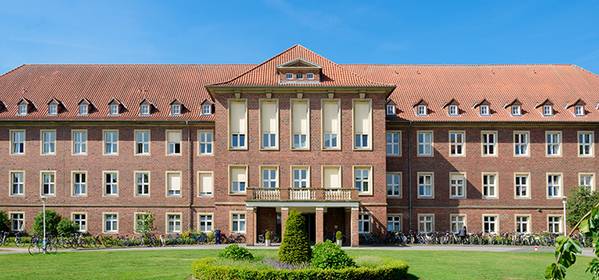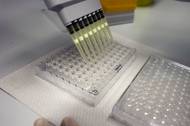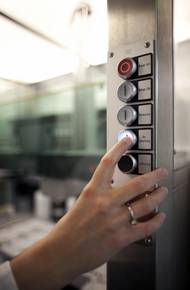Mental Health relevant research at the Department of Mental Health, UKM, and its regional partners, e.g. Münsterland Mental Health research network and a network in Ostwestfalen Lippe including the University of Bielefeld and Bethel is embedded in existing standardized research platforms that are a prerequisite for the generation of longitudinal and clinical cohorts as well as their clinical and neurobiological exploitation. The use of joint research platforms supports patient recruitment, the standardisation of study protocols as well as the provision of databases and analysis pipelines. These measures create a substantial gain in potential and quality such as uniform standards and SOPs enabling the collective use of data, collaboration with regional, national and international consortia.
- A neuroimaging platform implemented by several in-house partners performs high-throughput MRI measurements in large neuroimaging cohorts, and a unique MEG-facility in the Institute for Biomagnetism and Biosignal analysis (275-channel MEG with simultaneous recordings of peripheral signals). Available are all techniques and tools in functional, structural and metabolic neuroimaging and analysis pipelinies in a dedicated computer infrastructure. A special expertise is the combination of multi-site cohorts and quality assurance protocols across several sites, and the collaboration with national and international neuroimaging consortia. The already existing neuroimaging platform will be massively extended by the Advanced Neuroimaging Center in the Body & Brain Institute Münster, which is scheduled to open in 2023. This center will include four already funded 3T MRI-systems for neurobiological research.
- A platform of Preclinical Imaging eXperts (PIX) provides access to multimodal imaging technologies for cooperative research. PIX is based on proven expertise for single preclinical imaging tools, namely MRI (magnetic resonance imaging), PET (positron emission tomography), SPECT (single photon emission computed tomography, CT (X-ray computed tomography), FRI (near-infrared fluorescence reflectance imaging), and BLI(bioluminescence imaging). It´s mission is to create an integrated preclinical imaging workflow in connection with access to state-of-the-art instrumentation, tracers and imaging technology in order to promote both biomedical research and clinical translation.
- The core facility Transgenic Animal Models (TRAM) creates transgenic mice carrying disease-relevant genes/variants through conventional/conditional “knock-out”, “knock-in” and “chromosome engineering” and provides technologies for re-derivation of mouse colonies and long-term storage of mouse sperm.
- Clinical infrastructure for standardized measurement-based assessments, diagnosis and treatment evaluation of patients in cohort and clinical studies
i.) a platform for standardized clinical phenotyping involving routinely all patients at the Psychiatric Hospital of the Universität Münster, ii.) a clinical trial unit in Muenster and Bielefeld currently running xx clinical trials with a total of >25,000 in- and outpatient contacts per year available for recruitment., ii.) a medical informatics hub as part of the Medical Informatics Initiative, allowing for standardized access and processing of patients EHR and comprehensive expertise and infrastructure and iii.) two large, including the University Hospital for Mental Health in Muenster and the Clinic of Psychiatry and Psychotherapy of the Ev. Klinikum Bethel, Bielefeld. In total both clinics comprise almost 500 beds, 6,200 inpatients and 16,300 outpatients per year, as well as six community LWL hospitals organized in the Muensterland Mental Health research network.
- Two study centres for population-based studies (ca. 400 qm and 80 qm), entirely dedicated to the examination of participants in population and patient studies are operated by the Institute of Epidemiology and Social Medicine, one being the NAKO Münster Study Centre, the other is the BiDirect centre. The teams of trained study nurses perform extensive phenotyping of (sub-)clinical symptoms, assessments of functions and clinical-diagnostic work-ups. These centers are supplemented by the outpatient facilities and services of the Department of Psychiatry.
- Clinical trial research: The Centre for Clinical Trials Münster (ZKS Münster) is an institution of Münster University’s Medical Sciences Division. ZKS Münster provides services and expertise to scientists, clinicians, hospitals, physicians in private practice and networks both regional and supra-regional. ZKS Münster – one name for “Competence in all aspects of Clinical Trials”. ZKS Münster ensures operational excellence in clinical research based on international scientific, legal and ethical standards. In the process of clinical trial implementation, support from scientists versed in all aspects of German Drug Law and the Medical Devices Act aids the transfer of basic research findings into patient-orientated application. The centre’s focus is on promoting translational research and on providing quality assurance for clinical research projects as well as continuing education and advanced professional development of study staff. ZKS Münster is member of the KKS Network (Koordinierungszentren für Klinische Studien), TMV e.V. (Technologie- und Methodenplattform für die vernetzte medizinische Forschung e.V.), and ITCC (European Consortium for Innovative Therapies for Children with Cancer). The ZKS was initiated in 2007, funded by the German Federal Ministry of Education and Research (BMBF).
- Infrastructure for clinical trials as well as for community-based cohort studies at regional partner sites (University of Bielefeld) is extensively provided.
a. In the EvKB, both the Department of Psychiatry and the Department of Child and Adolescent Psychiatry include psychiatric outpatient services as well as research facilities with about 800 square meters, separate entrances, and rooms for assessments, medical examinations and blood sampling, EEG and ECG. A MRI facility is located in the clinical area (Krankenhaus Mara, also Bethel Foundation) and will be expanded to a university-based neuro core facility with a second MRI and further research facilities. The clinical information system (wlan) allows using mobile methods of digital assessment. Refrigerators are also available. Home-based assessments are also available with cars and digital access to the clinical information system.
b. The Psychological Faculty at the University of Bielefeld provides a large outpatient service and research facilities with more than 1000 square meters. All assessments, medical examinations and blood samplings are possible. Up to now, the Psycho-Web software is used for digital assessments.
- Funded by BMBF and the GBA, a pharmacovigilance platform had been established in the Institute of Epidemiology & Social Medicine recently assessing frequency, type and determinants of adverse events in patients with newly licensed medications, especially biologics. While currently limited to analyses in patients with multiple sclerosis, pharmacovigilance evaluations can be easily extended to patients with mental disorders.
- A joint digital patient assessment framework central to Transfer and Transition, draws upon the continuous, real-time patient data acquisition infrastructure already established in Münster. Specifically, the Remote Monitoring in Psychiatry (ReMAP) smartphone application is currently used in several large-scale studies such as DFG-FOR2107, the Münster Neuroimage Cohort, SFB-TRR58 and others to measure patient real-time movement and activity in addition to psychometric assessment. In combination with the IMI’s established Medical Data Integration Center (MeDIC which will be certified in accordance with ISO 13485 (TÜV audit late 2020/early 2021), this provides the Westphalia site with the – to our knowledge – only framework to develop and deploy apps compliant with the regulatory requirements for clinical use in an academic context in Germany. In the same vein, the Portal of Medical Data Models (https://medical-data-models.org/) developed by IMI is a recognized European information infrastructure (established in 2011, funded by DFG), which will be leveraged to foster digitization in mental health diseases. These technologies directly support real-world monitoring in Transfer and Transition.
- The central biobank of the Medical Faculty (ZBB-MED) is led by one of the applicants (K. Berger) and stores the available biosamples from the listed cohorts for long-term use in scientific projects. The biobank is a common facility of the faculty of medicine and the university hospital, offers storage at different temperatures (-178, -80, -20), operates with a central management software (Centraxx) and SOPs exist for all important processes including the transfer of biosamples. Broad consent and study specific consent forms exist to allow biomaterial collections from patients in routine psychiatric care as well as for those recruited into (clinical) studies.
- Genomics core facility: The Core Facility Genomics (CFG) at the Medical Faculty of the Universität Münster, registered as a DFG Research Infrastructure (RI_00385) provides the technological and scientific infrastructure for experiments involving a multitude of high-throughput genomics applications, especially NGS data and bioinformatics analysis of complex datasets. For this purpose, the CFG several runs several microarray platforms (Affymetrix and Illumina) and next generation sequencers (NextSeq2000, Illumina and IonProton System, Thermo Fisher Scientific), and provides the most applicable research method for each individual project. Full datasets of all genomic projects (e.g. approx. 200 NextSeq runs/year) are stored at the local CFG server (50TB storage, 25TB archive plus backup and recovery system) and prepared for subsequent bioinformatic analysis using the CFG bioinformatics infrastructure (5 local servers with 336GB RAM plus adjustable Ceph/OpenStack system with 6.5 TB RAM). The University’s high-performance computer PALMA II is also available for computational-intensive research such as the analysis of large datasets including NGS data. PALMA II was added to the list of the 500 fastest computers worldwide, and, when put into operation in 2018, was placed 17th among the top computers in Germany, of which only four are located at universities. The researchers heading the CFG have a long-standing track record for the generation, analysis and interpretation of high-throughput genomic data ranging from whole genome and exome genotyping and sequencing applications to epigenomic applications such as ATAC Seq, ChIP Seq, RRBS sequencing or methylation analysis. For gene expression profiling and RNA sequencing, the CFG provides services and bioinformatic analysis for mRNA, total RNA and small RNA sequencing and the respective array technologies. All applications including their bioinformatic analysis pipelines are based on well-established and standardized (laboratory) protocols to ensure the highest quality standard.
- SoN:
- Access to the data warehouse of a major German health insurance provides the possibility to analyze a secondary data source for health services research questions in patients with psychiatric disorders. The Medic platform, implemented by the German Medical Informatics Initiative and coordinated by Martin Dugas, provides access to the hospital information system of the local university hospital for research purposes.
- The existing IT-infrastructure is capable of processing high-dimensional datasets such as neuroimaging data and includes automated analysis pipelines. A GPU-based server structure for machine learning exists as well as in-house machine learning toolboxes, particularly the PHOTON toolbox, that also serves as a model repository. REDCap based electronic data capture systems (EDC) are used to collect standardised data online in different studies in cooperating hospitals and practices and directly from study participants. This EDC system is supplemented by a Teleform-based scanning platform for high-throughput data management of paper-based questionnaires and documents.
- At both partner sites, Bielefeld University and Universität Münster, there already exist interactive online Apps for patients allowing to collect data in addition to individual therapy support. Substantial infrastructure for the development of cognitive interaction technology has been established at Bielefeld University. In 2012, CITEC acquired a 30M€ research building especially tailored to the needs of cognitive interaction science. This includes a cognitive service robotics apartment, providing a rich sensor-actor environment for 24/7 observation of interactions between humans and a robot companion in a Smart Home context, a bimanual manipulation lab, exploring compliant robotics, an immersive virtual reality lab, that explores human-human as well as human-agent interaction by combining full body tracking, eye tracking and low-latency computer graphics. Further, the facilities are complemented by further shared lab facilities (robots, smart environments, motion trackers, eye trackers, optical scanning devices, EEG devices, etc.). For reproducible robotic system experimentation, CITEC has established a software-based DevOps environment for managing complex software-intensive systems in the research development cycle. A web-based catalogue which is linked with DOI services by the Bielefeld Library allows to an open access of linked research artefacts. This allows to transfer tangible research results to applications and other research facilities.
- The Portal of Medical Data Models at Universität Münster is a recognized European information infrastructure (established in 2011, funded by DFG), which can be leveraged to foster digitization in mental health diseases. The MeDIC is another key infrastructure to foster research in mental health diseases.
- Providing expertise in Big-data management central to the Multi-modal data integration platform, the Bielefeld Center for Data Science (BiCDaS) bundles key expertise on data science across different departments and faculties and represents a focal point for academics to exchange on new idea and solutions in the field of data science. Within the Cognitive Interaction Technology Excellence Center CITEC, there also exists substantial expertise and infrastructure supporting the management of data as well as key infrastructure for modelling, storing, querying and analyzing data in a continuous fashion. The CITEC has developed a framework that allows leveraging such data for research purposes in a way that is compliant with principles of data protection and with the GDPR.
- Regarding technical infrastructure and services underlying the AI Platform, the CITEC has available a cluster of Graphical Processing Units (GPUs) that supports the development, testing and evaluation of deep learning methods. Building on its excellence in machine learning research, the Medical Machine Learning Lab will contribute the machine learning software platform PHOTON-AI (www.photon-ai.com) as the infrastructural backbone of the AI Platform. Relying on the PHOTON machine learning repository, we will also be in the unique position to evaluate all clinical decision support systems within a common framework at scale to ensure maximum generalization and direct results with regard to Transfer and Translation. This infrastructure is already used nationally and internationally by large consortia including the ENIGMA Consortium (enigma.ini.usc.edu) to evaluate and share machine learning models.
Link to PDF: Research infrastructure and platforms



